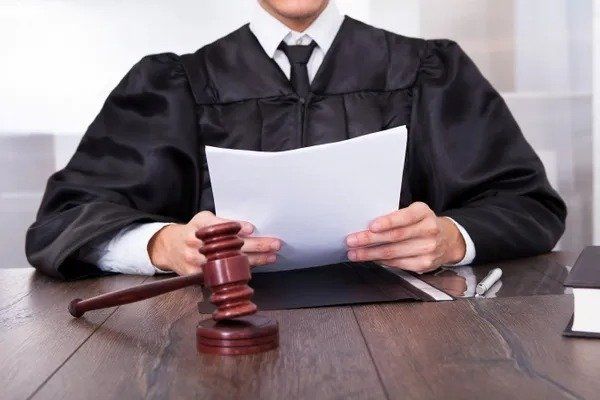Location:
Weekend Appointments Available
Returning Calls 7 Days A Week

Sex crimes and sexually based offenses occur in various ways and under various circumstances. Accusations of a sex crime can come with severe penalties, some of which can follow someone for the rest of their life. However, not all sexually based offenses are the same. Harassment, abuse, and assault aren't synonymous. It can help to understand how they differ, especially if someone alleges one of these crimes took place.
What Is Sexual Harassment?
Sexual harassment generally means any type of unwelcome advances that have an underlying or overtly sexual nature. As a very broad term, sexual harassment encompasses a wide variety of things. Some of the more common types of sexual harassment include, but aren't limited to:
- Sexually suggestive comments
- Unwanted touching, groping, or grabbing
- Repeated comments on someone's looks or physical features
- Sexual jokes made about someone
This form of harassment can easily cross over into other forms of harassment as well. And while unwanted advances are considered sexual harassment, there are other types of sexual harassment as well.
For example, sexual coercion implies attempting to get someone to exchange sex for some type of favor, such as sex for a promotion. Even if nothing comes of the attempt, the attempt itself is a form of sexual harassment.
Another form of sexual harassment doesn't involve sex at all, but rather gender. Harassing someone because of their gender or preferences can make a harassment allegation sex-based and, therefore, sexual harassment.
Typically, sexual harassment represents a civil rather than a criminal issue. Nevertheless, sexual harassment, especially when aggressive, can cross over into sexual assault or other types of criminal allegations.
What Is Sexual Abuse?
What classifies something as sexual abuse is the power differential between the people involved. When someone in a position of greater power uses that authority to engage in forced or unwanted sexual activity with someone, then it's a case of sexual abuse.
The term sexual abuse often comes up in regards to sexual child abuse. However, the term applies to any situation where there's an exploited power dynamic. Some examples of these power discrepancies can include:
- Adults and children
- Doctors and patients
- Teachers and students
- Priests and parishioners
- Employers and employees
In all these cases, one party has a position of power and trust over the other party. If they take advantage of their position to press unwanted advances or outright sexual assault, then they would have committed sexual abuse.
What Is Sexual Assault?
Sexual assault is a broad term but typically means any nonconsensual, coerced, or forced sexual act. Sexual harassment can easily veer into sexual assault territory, and sexual abuse, by its nature, can represent a type of sexual assault. In all cases, sexual assault starts as a criminal offense, not a civil one.
Some examples of sexual assault can include:
- Sexual violence (itself an umbrella term)
- Rape and statutory rape
- Anything of a sexual nature involving a child
In some cases, sexual harassment can become sexual assault if someone feels the harassment overly victimizes them.
The state of Wisconsin recognizes four degrees of sexual assault. The severity of the degree increases the penalties for the conviction. Even the mildest punishment for sexual assault in the state can have dire consequences:
- 4th degree sexual assault is a high-level misdemeanor. You can face up to nine months of prison time and a $10,000 fine.
- 3rd degree sexual assault is a felony that can come with up to 10 years in prison and a $25,000 fine.
- 2nd degree sexual assault is a class C felony that comes with up to 40 years in prison and a $100,000 fine.
- 1st degree sexual assault can come with a 60-year prison sentence.
Each degree of sexual assault also has conditions that can increase penalties. For example, 1st degree sexual assault can come with a life sentence if the victim hasn't reached the age of 13 yet.
If the sexual assault involved the use of a deadly weapon or a weapon the victim perceives as deadly, then an offense of lesser degree can go up to a more severe degree. A conviction also means registering as a sex offender.
Despite the differences in the terms that describe sexually based crimes, they all can cross over into each other. Sometimes, just the degree of how an action made someone feel is enough to push a sexual harassment charge into an abuse or assault charge.
An allegation of sexual harassment, abuse, or assault isn't something anyone should take lightly. The accusation alone can ruin a reputation and a conviction can ruin a life.
The social standards that give these terms meaning can also change over time, and the laws governing them can change as well. An example of this comes with the advent of modern technology, such as social media, which can sometimes blur the lines of what constitutes sexual harassment and sexual internet crimes.
If you're faced with allegations of sexual misconduct, harassment, or assault, contact the sexual assault defense lawyers at Cohen Law Offices, LLC, immediately.
To start your resolution, call us today
We will get back to you as soon as possible.
Please try again later.
GET THE HELP YOU NEED, CALL US TODAY
At Cohen Law Office, we offer free initial consultations to discuss your case further and find the right solution for you. Our team provides the best representation to each client we work with and present the strongest possible defense. Give us a call today to start your resolution in your criminal defense case.

Weekend Appointments Available
Returning Calls 7 Days A Week
Review Us On Google
